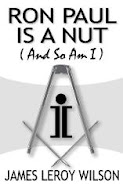I'm reading J.G.A. Pocock's lengthy introduction to Edmund Burke's Reflections on the Revolution in France (ISBN: 0872200205), considered the founding text of English conservatism. It should be noted, for those who didn't know, that Burke himself was neither English nor an aristocrat. He was an Irish Protestant and intellectual who served in the House of Commons due to networking and patronage with aristocrats. Also, "Whig" and "Tory" didn't mean the same as they did in the American Revolution, or even in 19th Century Britain when the Whigs more or less evolved into the Liberal Party and the Tories to the Conservative. Instead, the Whig party was pretty much the party in Britain, with its own factions. It was the party of the monarchy, the aristocracy, of commerce, of Edmund Burke; Pocock's vague description of Tories implied that they were against this monarchy, viewing the Glorious Revolution of 1989 and Hanoverian succession of 1714 as not exactly legitimate. And they also seemed to be somewhat populist for the age, railing against the "monied interests." I suppose they really were reactionaries, and only in the 19th Century did they embrace 18th Century Whiggism in opposition to Liberal Reforms.
Anyway, I found two paragraphs particularly interesting, beginning on page xxxii. One thing that bothered Burke about the arrest of Marie Antoinette was that it was just plain bad manners - and that was very important. Greco-Roman conceptions of "virtue" had members of the ruling class sacrificing all for the State - courage in war and statecraft - but they were fairly insulated from their own slaves and the masses of the people. The medieval conception of "chivalry" was a vast improvement, as it actually implied relationships and a sense of responsibility between the social classes and sexes. With the advent of commerce came the evolution of chivalry into "manners" - "courtesy, morality, a language of interpersonal behaviour." Ancient man relied on his own character, modern man was more civilised due to more extensive social intereactions. The decline of manners was one of the effects Burke feared from the French Revolution.
He was probably right, and since his day concern over the decline of manners has probably been the common element between English and American conservatism. But it could be that we have "evolved," or at least, transformed to more egalitarian mores of sensitvity, tolerance, and self-expression. Yes, this has its dark sides - imposed Politically Correct speech codes, for instance. Or, whatever level of crassness you find objectionable, which was previously not even not tolerated, but probably not even thought of. The problem with the latter complaint is, there probably is a level of crassness you youself do accept and perhaps enjoy, but which offends someone older than yourself.
In any case, one proof that modern public war mongerers and Bush-lovers are not conservative is in the very crassness of their books and radio shows.
One thing we can be confident of is, whatever political change we may want, we won't be able to predict the change in manners. Yes, as government got bigger, manners declined. That doesn't mean, however, that if those of us who want government to get smaller should expect to see "improvement" (according to their own personal standards and preferences) in character and culture. Maybe so, but that shouldn't be the purpose of political change. The concern there must be for justice, and we can have faith that a just society will be a good society.
James Leroy Wilson's one-man magazine.
Subscribe to:
Post Comments (Atom)




No comments:
Post a Comment